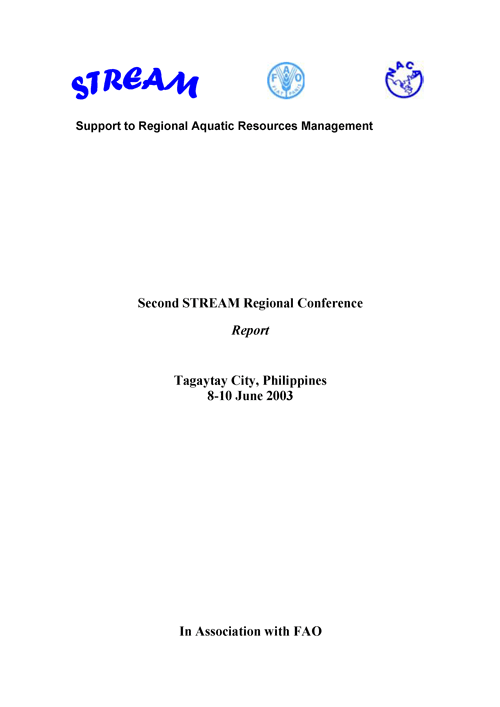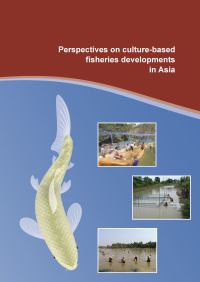Report of the Second STREAM Regional Conference, Tagaytay City, the Philippines, 8-10 June 2003
10 June 2003 | 932 Downloads | .pdf | 262.43 KB | Australia, Cambodia, China, Gender, India, Livelihoods, gender and social issues, Nepal, Philippines, Thailand, Vietnam
The Second STREAM Regional Conference was held in Tagaytay City, Philippines, from 8-10 June 2003 with the participation of 23 people from Australia, Cambodia, India, Nepal, Philippines, Thailand, Vietnam and Yunnan (China).
Following a regional overview of STREAM’s themes, country partners, donors and funding, and activities, participants visited four “stations” on the themes of livelihoods, institutions, policy development, and communications, working in groups representing National Coordinators, Communications Hub Managers, and Partners. They engaged in discussions with a “station leader” and each other to learn about and comment on objectives, activities, outcomes and outputs, and to consider issues that need addressing in STREAM. The broad categories in which issues were raised were:
- Livelihoods analysis, capacity-building, APEC Coastal Livelihoods Study, SPARK-STREAM Livelihoods and Languages.
- Institutions, country strategy papers (CSP), CSP Planning Kit, NPARR, monitoring and evaluation system.
- Policy change, partnerships, approaches, awareness and evaluation.
- Communications.
- Information, media, translation, website.
Participants wrote significant change stories based on their experiences of working with STREAM or in other contexts, four of which were read out during a conference session.
There were several opportunities during discussions to hear statements from countries which began to provide evidence for change as a result of STREAM activities. These helped to begin to understand how to situate “evidence of outcome and impact” among stakeholders.
Each group reviewed the issues raised and proposed how these might be followed up at regional and country levels. Key follow-up actions include:
- Getting the STREAM Monitoring and Evaluation System up and running.
- Reviewing Regional Office support to country offices around various activities.
- Following up livelihoods analyses (and revising them periodically) with activities with communities.
- Becoming better at and more focused in information exchange and communicating, within STREAM and with stakeholders.
- Reaching communities.
- Considering opportunities for engaging in mass media communications activities.
- Learning more about “Do no harm” analysis, rights-based development approaches, and opportunities to inform donor policy and to advocate for policy change.
- Taking the livelihoods and languages process further.
- Enacting workplans upon “completion” of a CSP.
- Scheduling a process for reviewing the CSP process and revising the CSP Planning Kit.
- Writing “briefs” on, for example, policy change.
- Improving STREAM’s visibility.
- Seeking opportunities to publish in other media.
- Resolving issues of translation.
- Reconciling the STREAM website with NACA’s.
To evaluate the conference, participants wrote statements about how it had (or had not) followed STREAM’s Guiding Principles.
Creative Commons Attribution.

